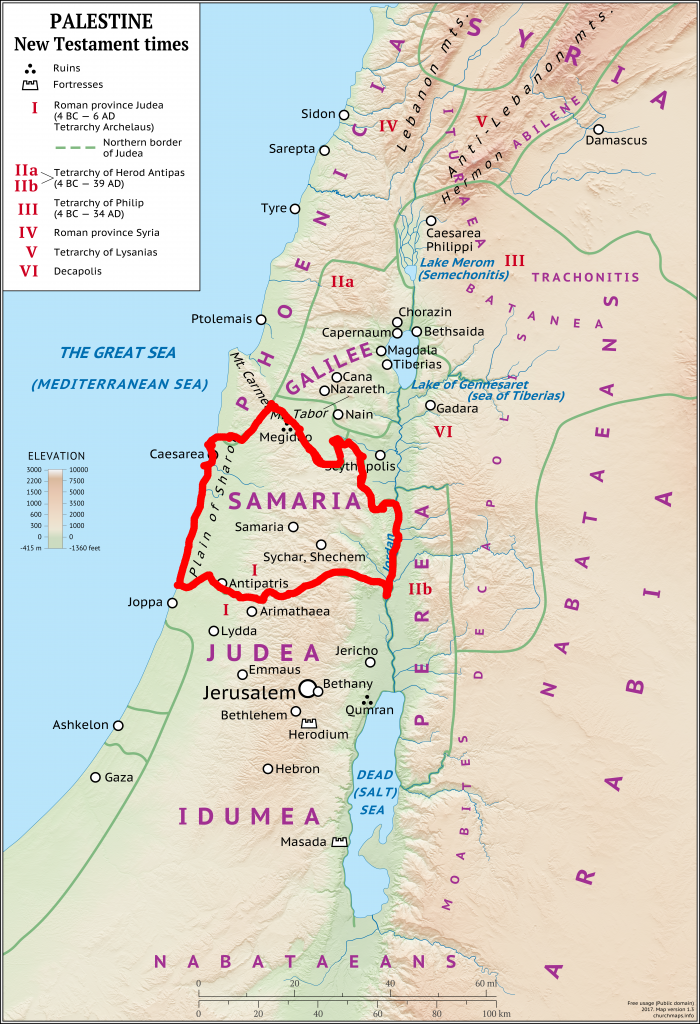
Twice An Outcast
Your home is in the region of Samaria1, that area between Judea and Galilee in first-century Palestine, which is the home of the children of political rebels and racial half-breeds. In the eyes of the Jews, your people are at best second-class citizens, at worst you are heretics.2
Not only are you a Samaritan, but you are a Samaritan woman. As such, you are considered perpetually unclean.3
And not only are you a Samaritan woman, but you are a Samaritan woman with a terrible reputation, even among your own people.
In short, you are an outcast among outcasts.4
You live in the village of Sychar, a small town that lies at the base of Mount Ebal, opposite Mount Gerizim in the southeastern quarter of Samaria.5
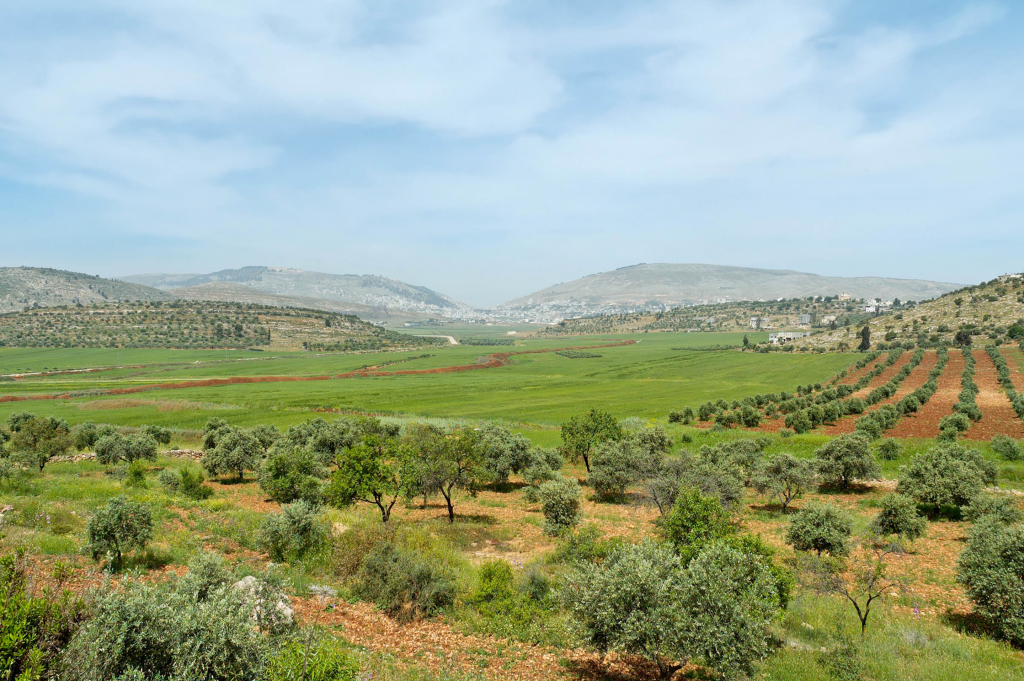
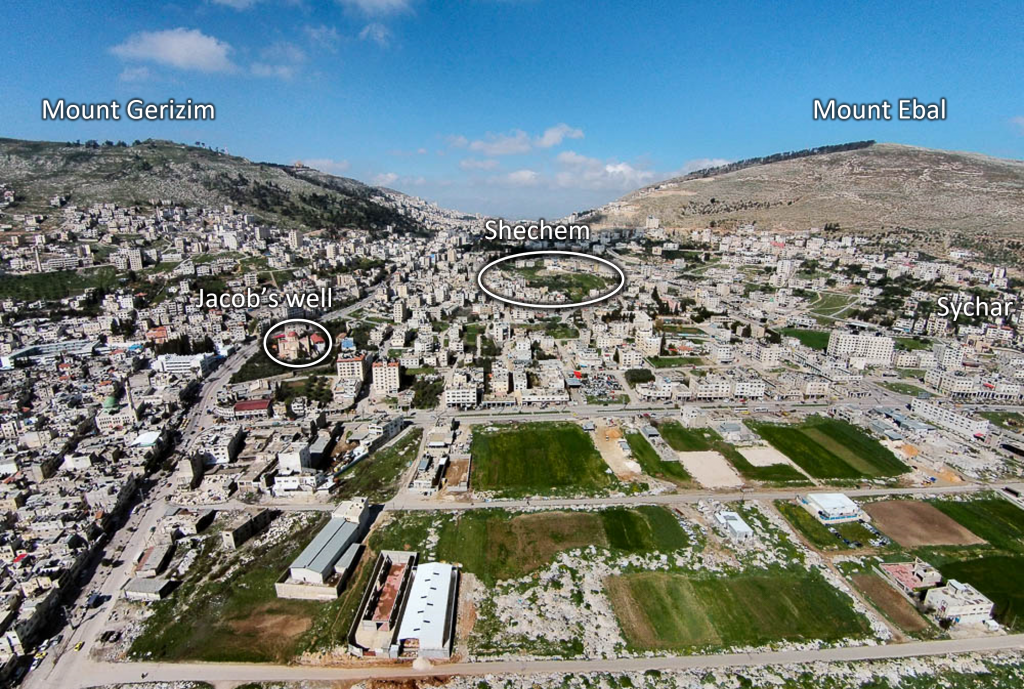
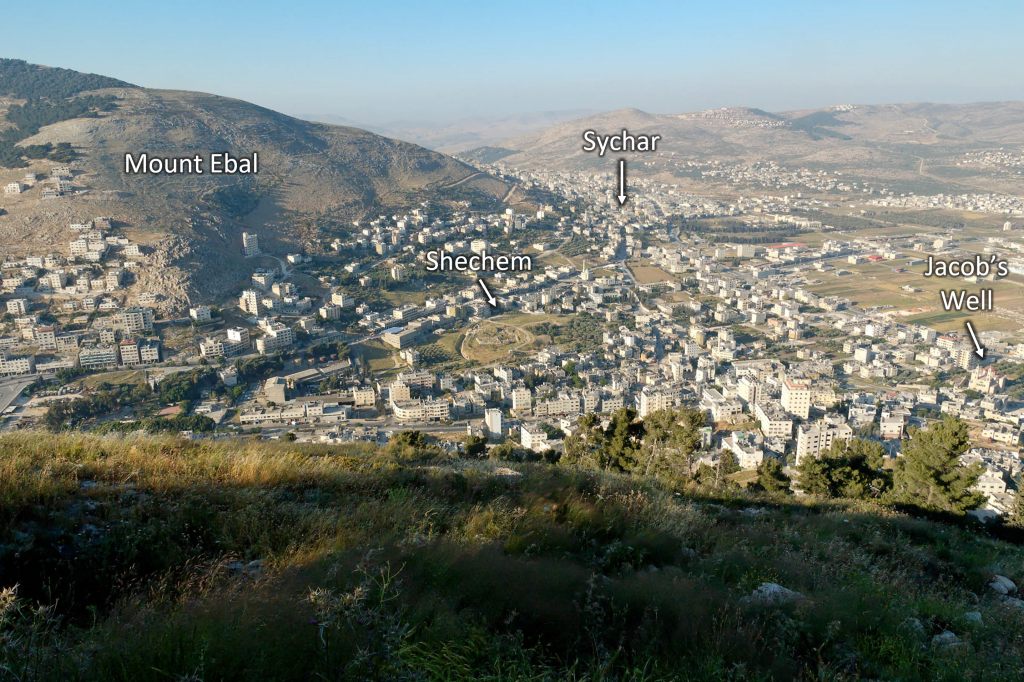
Sychar is home to a few hundred people.6 With such a small town, everyone knows who you are … and what you are.
A Typical Morning in Sychar
Life in Sychar revolves around two places — the square in the center of the village (where the communal well is located) and the marketplace, on the outskirts of town.7
As the sun rises one morning, you hear the activity of the other villagers. People are coming out of their homes. Friends are greeting each other. Children are playing and squealing. The sounds of the village market are growing as people are buying food for the day. Several women are on their way to draw water, happily talking about their family, the events of yesterday, whatever the topic of the day is. Their laughter reaches your ears.
You close your eyes and bow your head slightly, subconsciously hiding your face. As you do each morning when the sounds of the village assault your senses, you surrender to the ancient lie of shame — you are without value, rejected, tarnished, and defiled.
You won’t be leaving the house until later that morning. You won’t be saying “Hello” to friends. You won’t be joining the conversation. You won’t be smiling at the children. You won’t be laughing with the other women.
You’re not welcome in the village’s social circles.
It Seems So Long Ago
Your life began with so much promise. A young girl, betrothed to an upstanding man in the village. On your wedding day, you were excited (and nervous) as this new chapter of your life commenced.
Now, twenty years later, you don’t know how your life could have gone so wrong. Married five times previously and now living with a man who valued his possessions more than he valued you, you are the object of scorn and derision in the village.
And you fully expect that today will be exactly like yesterday and the day before yesterday and every day before. As far back as you care to remember, despair has filled every moment of your life. Your days have been void of dignity, not worth living.
A Short Journey
Today, as every day, you wait until later in the morning to slip out of your family’s living quarters. Unlike all of the other women in the village who normally traveled in groups for protection8, you go alone to draw water. You go in the heat of the day. And you go to Jacob’s well, half a mile outside of town instead of to the communal well in the center of the village. The chance that you will meet anyone at Jacob’s well are slim.
But as you approach the well this day, you see a strange sight. A man is sitting near the well.
You hesitate because you don’t want to have contact with anyone — every day, shame dominates your life. Criticized and demeaned for much of your adult life, you don’t have the strength to listen to more insults, especially from a stranger. But behind the walls of shame and fear you maintain, there lies a deep, inconsolable longing — a thirst — for lasting hope, joy, meaning, and love.9
As you draw closer, you see that the man is actually a Jewish rabbi. So much the better — you can ignore him because he won’t talk to you, a Samaritan and a woman.
So you approach the well and lower your water jar into the well.
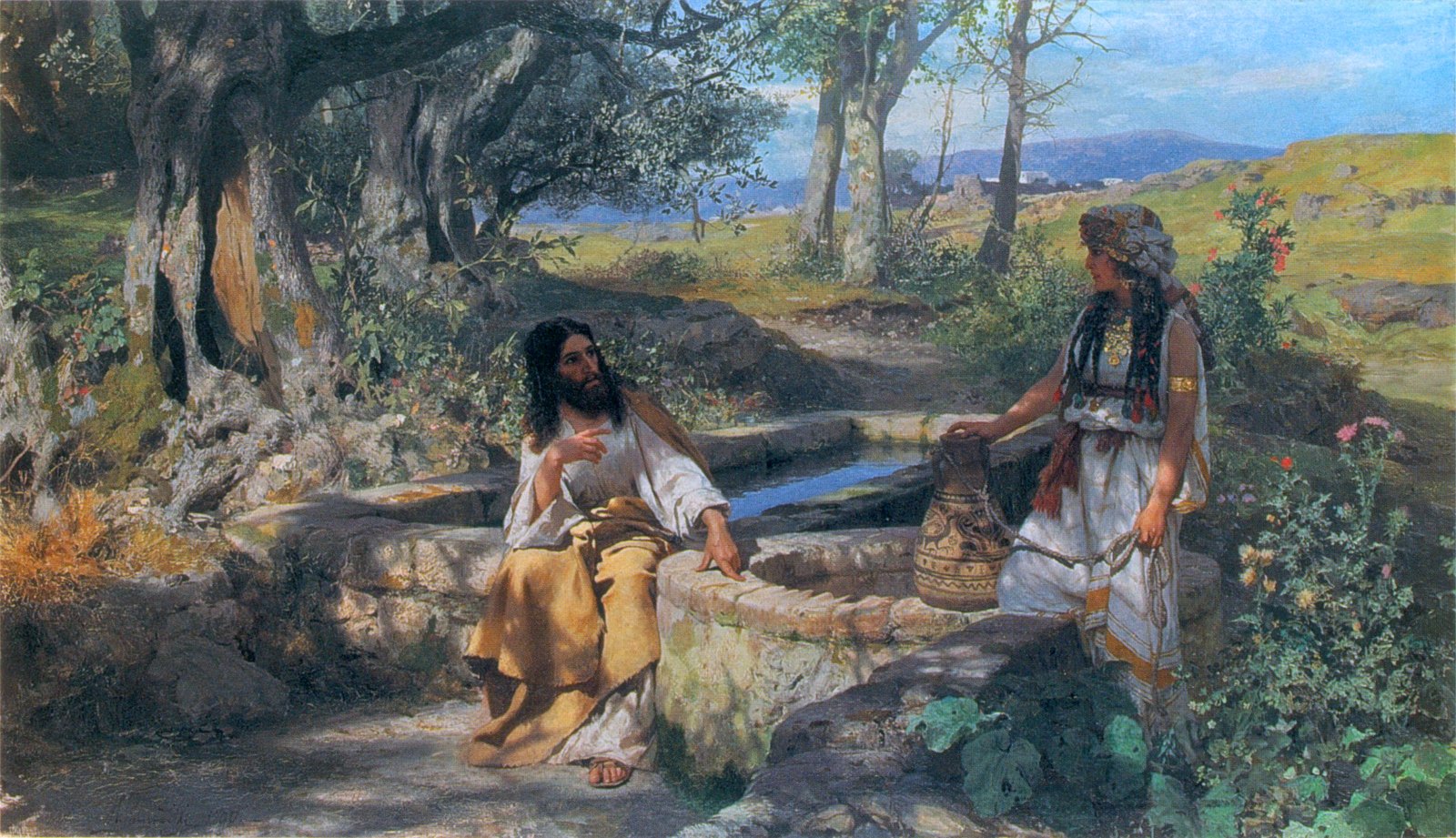
“Give me a drink,” says the quiet voice behind you.
While no one in your village would speak to you except to insult you, when a Jewish rabbi speaks these simple words, it gives you the dignity and honor for which you have thirsted all your life.
And as the conversation continues, you realize that not only has a Jewish rabbi spoken with you, the Messiah has spoken with you! What does it matter now what others think of you?
So began the journey from a life of shame to a life worth living, inviting others to meet the Savior!
Living in Shame and Despair Today
Around the world today, there are countless Muslim women just like the Samaritan woman at the well — living in shame and despair. Their worldview tells them no one sees them. That they are inherently unclean. That they cause everything bad in their families. That they are shameful.
And just like the woman at the well, these Muslim women of today are thirsting for the honor and dignity that only that same Jewish rabbi can give them. They are waiting to drink from the living water that Jesus gives and tell their Islamic community about Jesus, the Savior who knows their deepest needs.
Just as they were 2,000 years ago, the fields (the hated Samaritans in the first century and Muslims today) are white for harvest.
What if Christian women today could shatter the worldview of these Muslim women?
It sounds complex, but it really isn’t.
It sounds intimidating, but it doesn’t have to be.
A simple “Hello” from a Christian woman can shatter the worldview of a Muslim woman because unlike what she has been told all her life, that simple “Hello” tells her she is seen, that she has value, that she has dignity, that she is to be honored.
Hanna’s story shows us how simple friendships can lead to life-changing encounters with Jesus:
Ryan and Lauren Plute
Assemblies of God missionaries Ryan and Lauren Plute are giving their lives to help Christian women say “Hello” to Muslim women like Hanna.
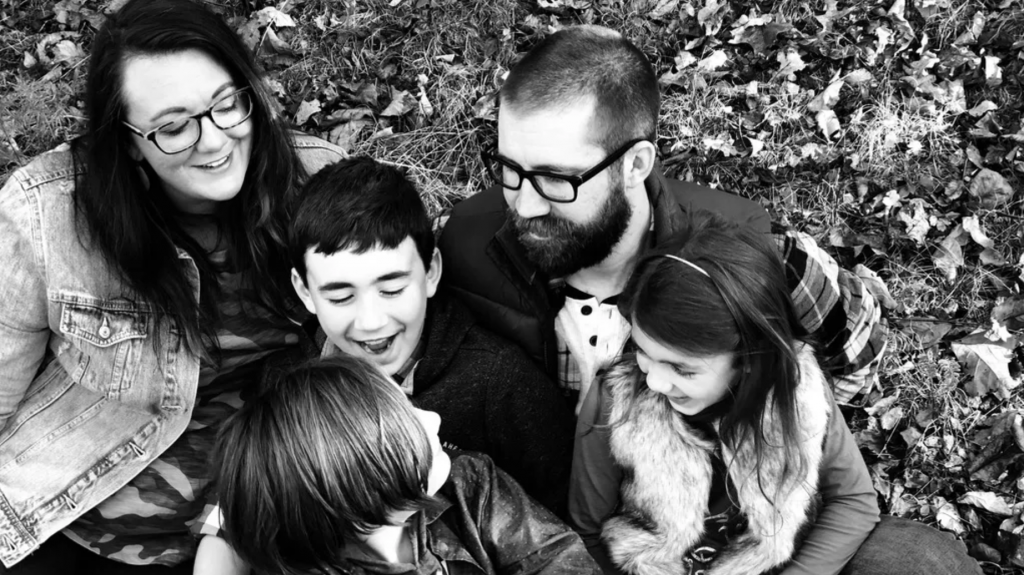
Ryan and Lauren first felt a call to missions in Sunday School classes when they were of elementary-school age. They later met and became friends in college. Missions played a big part in their conversations.
After they were married, they asked the Lord where He wanted them to go and what He wanted them to do. But they didn’t feel called to a specific country. Instead, they felt called to a purpose — to reach Muslims.
That calling led them to the city of Istanbul in Turkey, where they served on a church-planting team for ten years. While in Istanbul, they helped plant the first Assemblies of God church in Turkey, ultimately reaching people (including some of their Muslim friends) from twenty-two different nations, regions, and people groups (including Turkey, Iran, Syria, North Africa, Kazakhstan, Turkmenistan, Kurds, Afghans, Europeans, etc.). It was a colorful tapestry — a foreshadowing of heaven where a great multitude that no one can count, from every nation, tribe, people and language, will stand before the throne and before the Lamb!
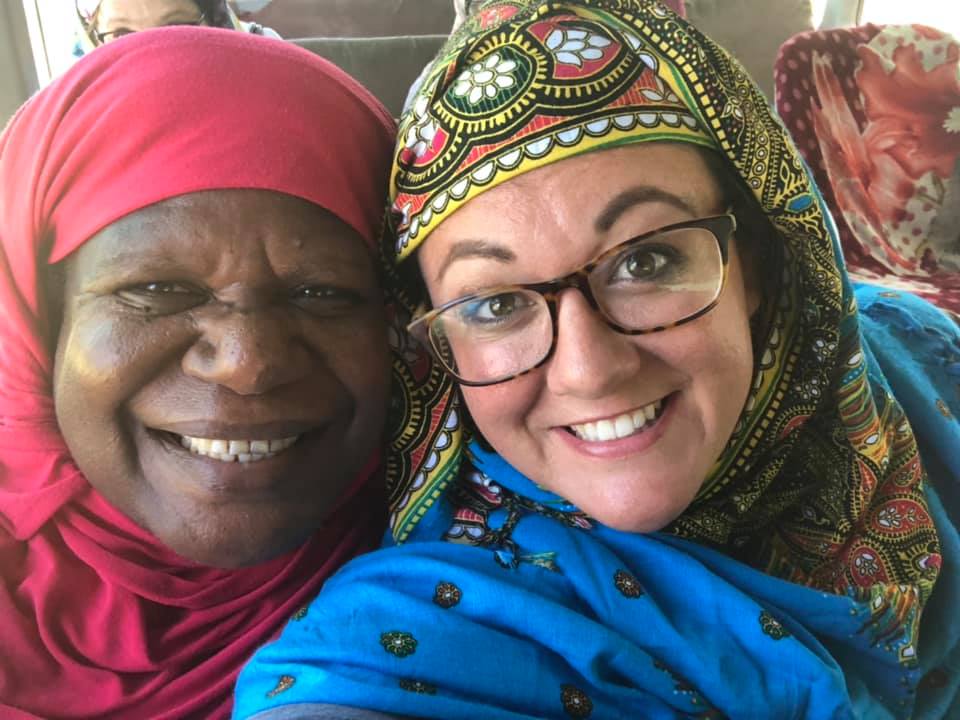
One day in Istanbul, Lauren was reading the story of Saul and Ananias in Acts 9. Saul was on his way to Damascus to persecute the followers of Jesus but was converted on the road when Jesus appeared to him. He was struck blind and led into Damascus by those who were traveling with him — to the house of Judas in the street called Straight.
Meanwhile, God spoke to a disciple named Ananias and told him to go to the house of Judas and lay his hands on Saul, so he might receive his sight again. Initially, Ananias objected because he had heard how Saul was terrorizing Christians. But ultimately, he obeyed God and went and laid hands on Saul. Saul’s sight returned, and he received baptism and the infilling of the Holy Spirit.
As Lauren read that story in Istanbul, God spoke to her and told her, “There are ‘Sauls’ (Muslims) coming into every major city in the world. And there are ‘Ananiases’ in those cities who I want to use to reach the Sauls.”
That moment was a spark that led Ryan and Lauren to work with a ministry called Say Hello in 2018. Say Hello is a division of Global Initiative, the Assemblies of God ministry to Muslims. And they train “Ananiases” to reach “Sauls” around the world.
Say Hello helps Christian women around the world begin friendships with Muslim women and then equips them to share Jesus with these Muslim women through “Christ-pointing friendships.”
The Say Hello training takes place through small groups, conferences, curriculum development, local Muslim outreach, teaching undergraduate/graduate Bible school courses, and a series of helpful free resources. Say Hello and Global Initiative have equipped national churches in over 95 countries to share the gospel with Muslims.
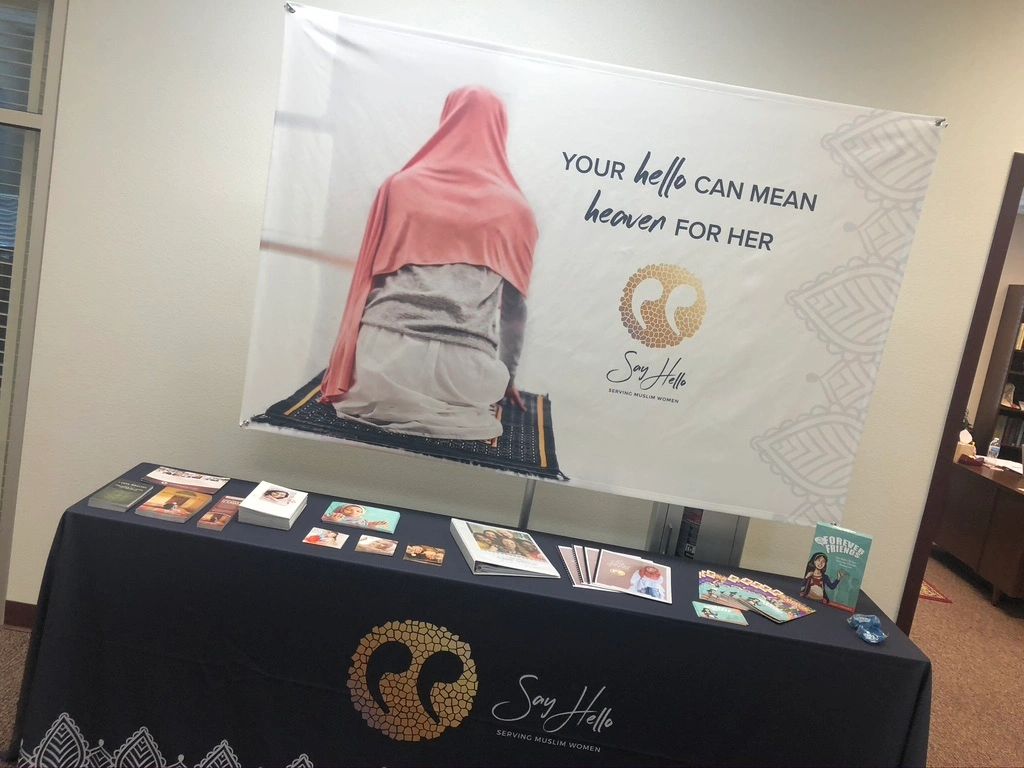
How to Join Ryan and Lauren’s Team
If you’ve read our pillar articles (which can be reached through the tabs at the top of the site if you are using a desktop or the three-bar/”hamburger” menu if you are using a mobile device), you know that our conviction is that all believers should be part of a team seeking to reach the unreached. Some will go, some will pray, some will provide financial support, some will provide logistical support — but all are called to give their lives to reach the nations.
Here are several ways you can be part of Ryan and Lauren’s team:
- Read through the stories in the News & Updates section of Ryan and Lauren’s website, and let your heart soar to the stories of how Jesus reaches Muslim women!
- Review the Say Hello ministry magazine.
- Read the articles on the Say Hello blog and visit the Global Initiative website to learn more about Islam.
- Sign up for the Say Hello mailing list and receive free copies of devotional and prayer guides which will help you pray for and reach Muslims.
- Connect with Ryan and Lauren and the Say Hello movement through social media:
Ryan and Lauren on Facebook
Ryan and Lauren’s Private Group on Facebook
Ryan and Lauren on Instagram
Say Hello on Instagram
Say Hello YouTube Channel - Pray for Ryan, Lauren, and their children — Kason, Colten, and Kayra — on an ongoing basis. Stay up-to-date on their latest prayer needs by subscribing to their newsletter.
- Visit the Say Hello prayer page to pray for specific requests each week.
- Give a one-time gift to support their ministry, or support the Plutes with a monthly financial partnership. You can give to their ministry at their giving page.
- Tell your Christian friends about the Plute family and what they are doing. Invite them to share in your small group, at a dinner party, etc.
- If you are a pastor or a missions leader, invite them to speak at your church. See the Plutes’ digital info packet for more information on how this might look.
- And if you are a Christian woman, say “Hello” to Muslim women in your neighborhood, at shopping malls, at your children’s school, etc.!
COUNTRIES IN THIS ARTICLE: Afghanistan, Iran, Kazakhstan, Syria, Turkey, Turkmenistan
WORKERS IN THIS ARTICLE: Ryan and Lauren Plute
1 This story is based on the locations, personalities, and events recorded in John 4:7-42.
2 Carson, D. A., The Gospel According to John. Grand Rapids, MI: Wm. B. Eerdmans Publishing Co., 1994, pages 215-216.
3 Williams, Matthew. “Shame Removed; Honor Received, Part 3.” The Good Book Blog. Biola University, June 17, 2011. https://www.biola.edu/blogs/good-book-blog/2011/shame-removed-honor-received-part-3.
4 Ibid.
5 Todd Bolen, “John 4,” BiblePlaces.com, accessed December 17, 2021, https://www.bibleplaces.com/john4/ and Carson, D. A., The Gospel According to John, page 216.
6 Note that details regarding the village of Sychar are conjecture on the author’s part and not specifically revealed in Scripture. Size of Sychar estimated based on information in White, Dan, Kate O’Brien, and Steve Todd. Into the Desert: Cultural Snapshots to Unlock the Scriptures. Sydney: Catholic Education Office, 2010. Portion accessed at http://rokreligiouseducation.com/wp-content/uploads/2015/11/village_life_in_first_century_palestine.pdf. Also note that the Samaritan woman’s background is the subject of some conjecture among different commentators — we have used what seems to be the prevailing view.
7 Ibid.
8 Frost, Kelly. “Finding My Identity at the Well.” Wesley Chapel, June 17, 2021. https://www.wesleychapel.org/finding-my-identity-at-the-well/.
9 Bloom, Jon. “Secret Allies in the Human Heart: The Advantage We Have in Evangelism.” Desiring God, February 24, 2021. https://www.desiringgod.org/articles/secret-allies-in-the-human-heart.
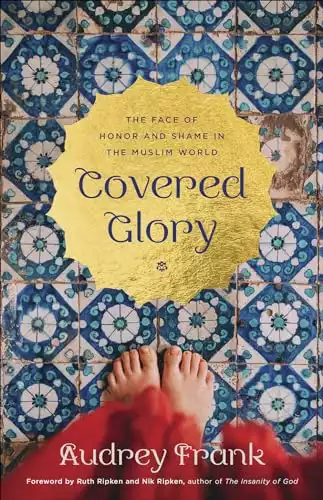
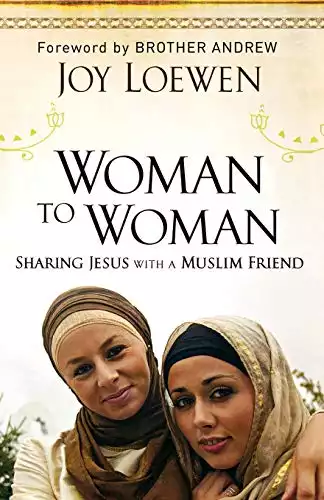
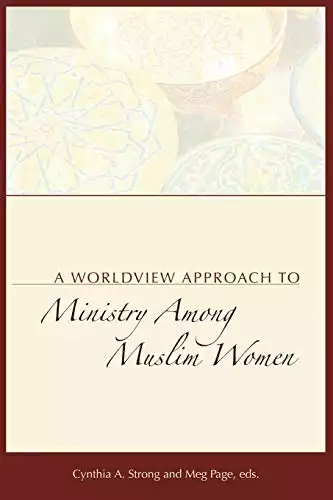
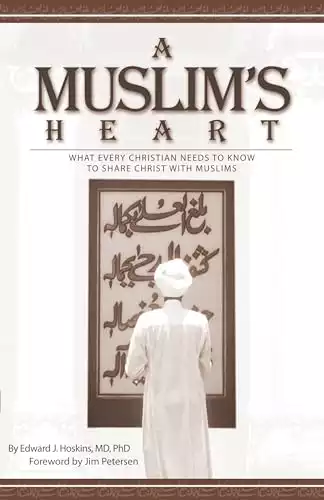

Leave a Reply